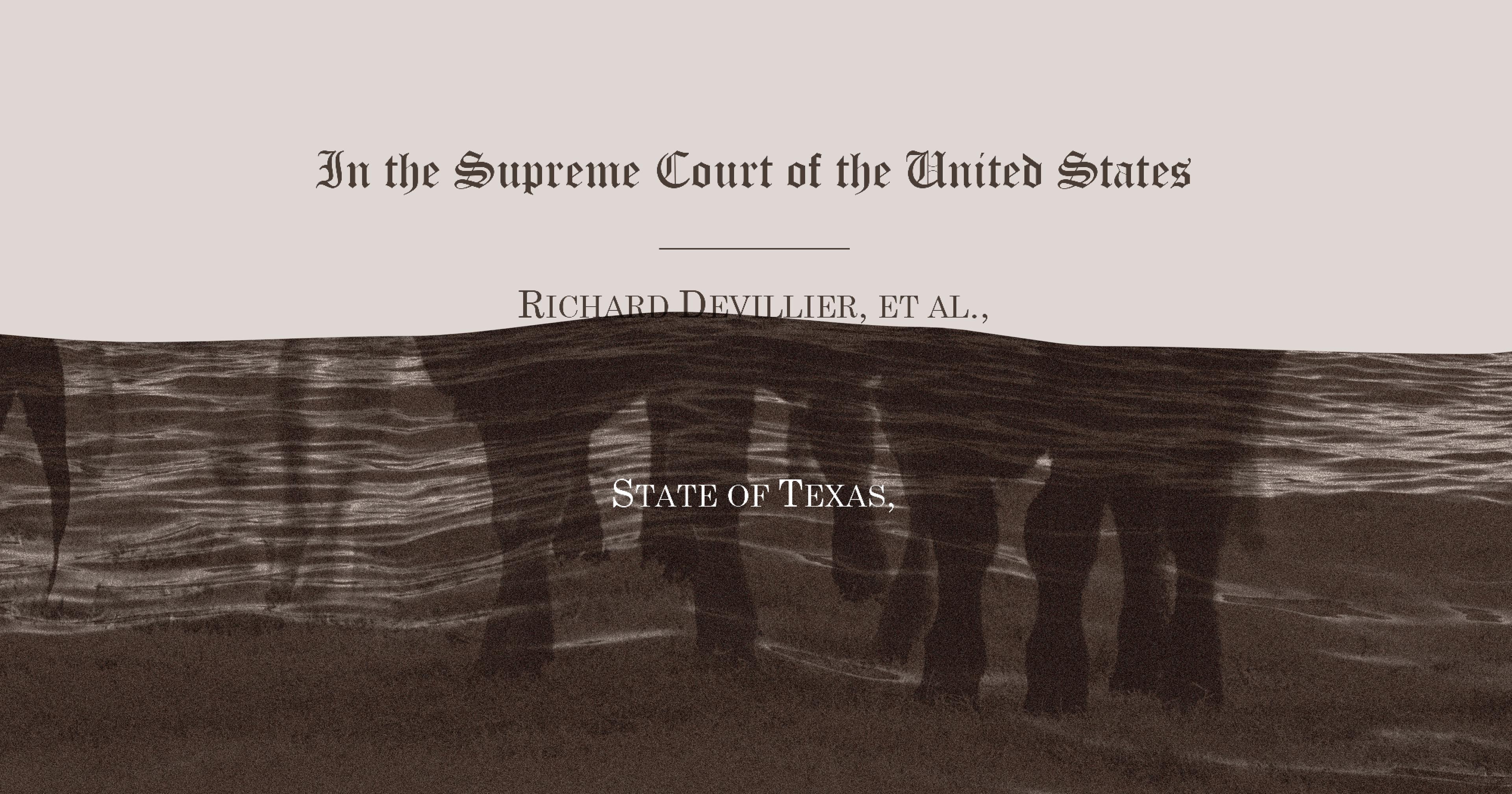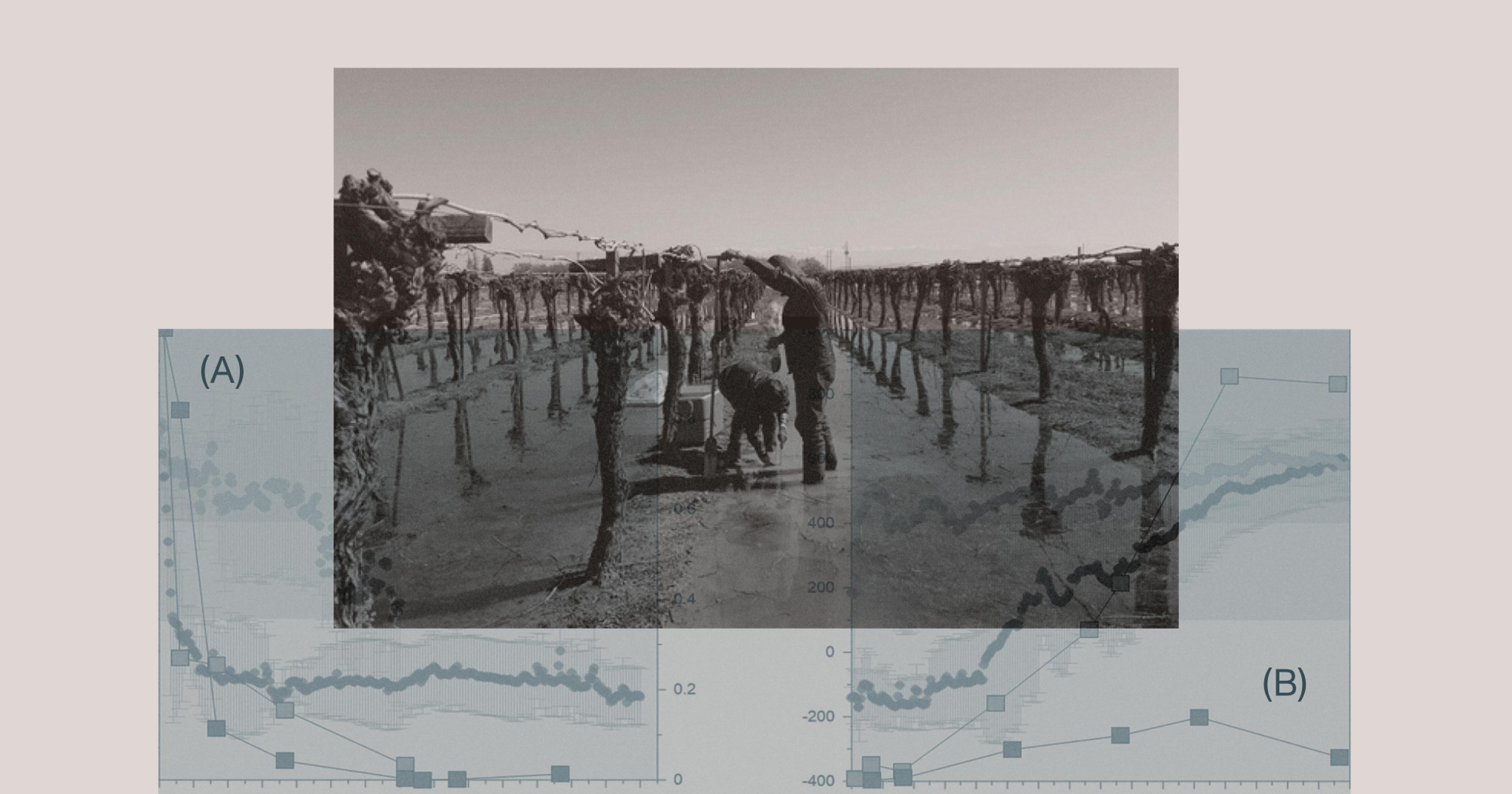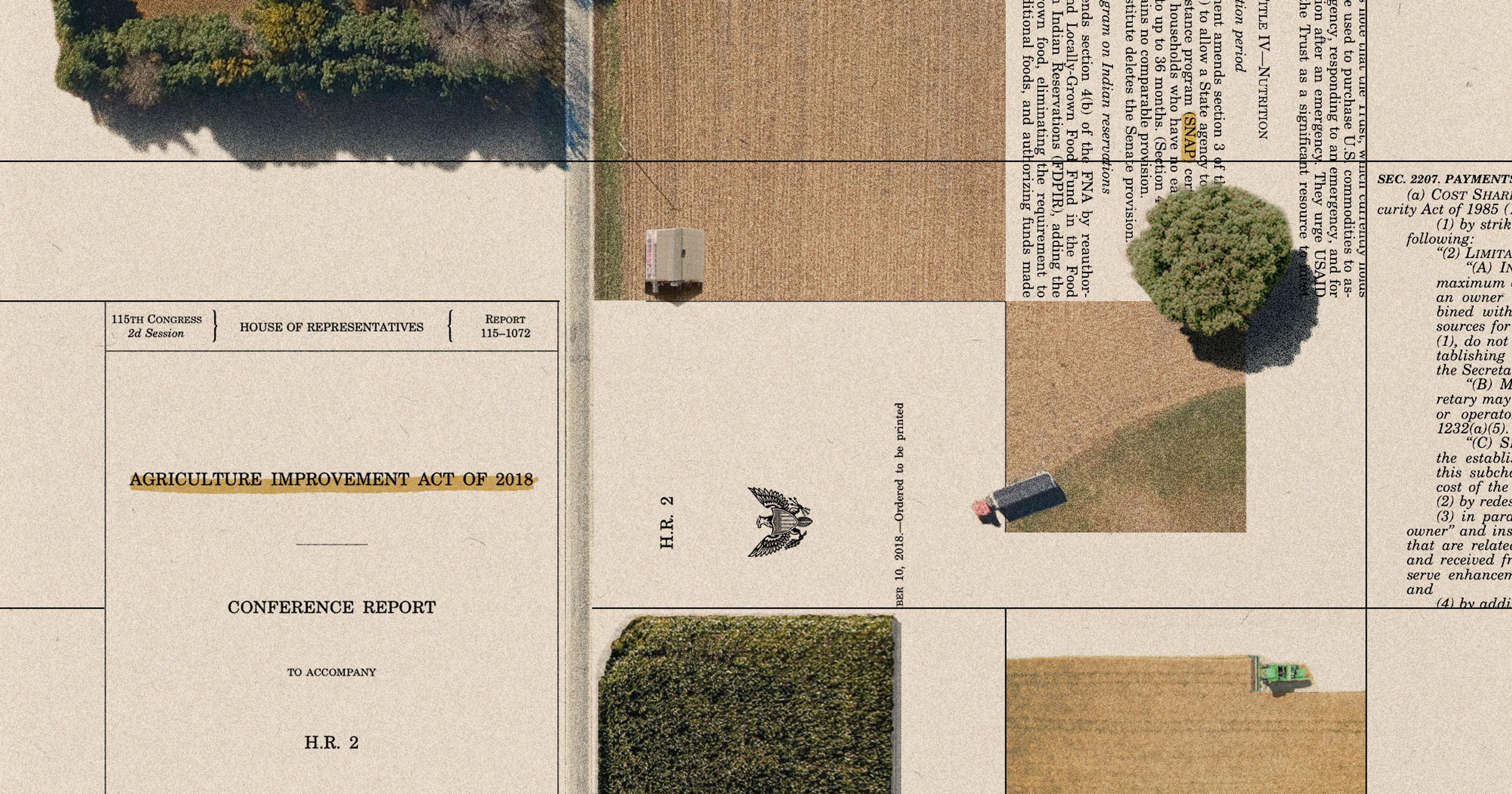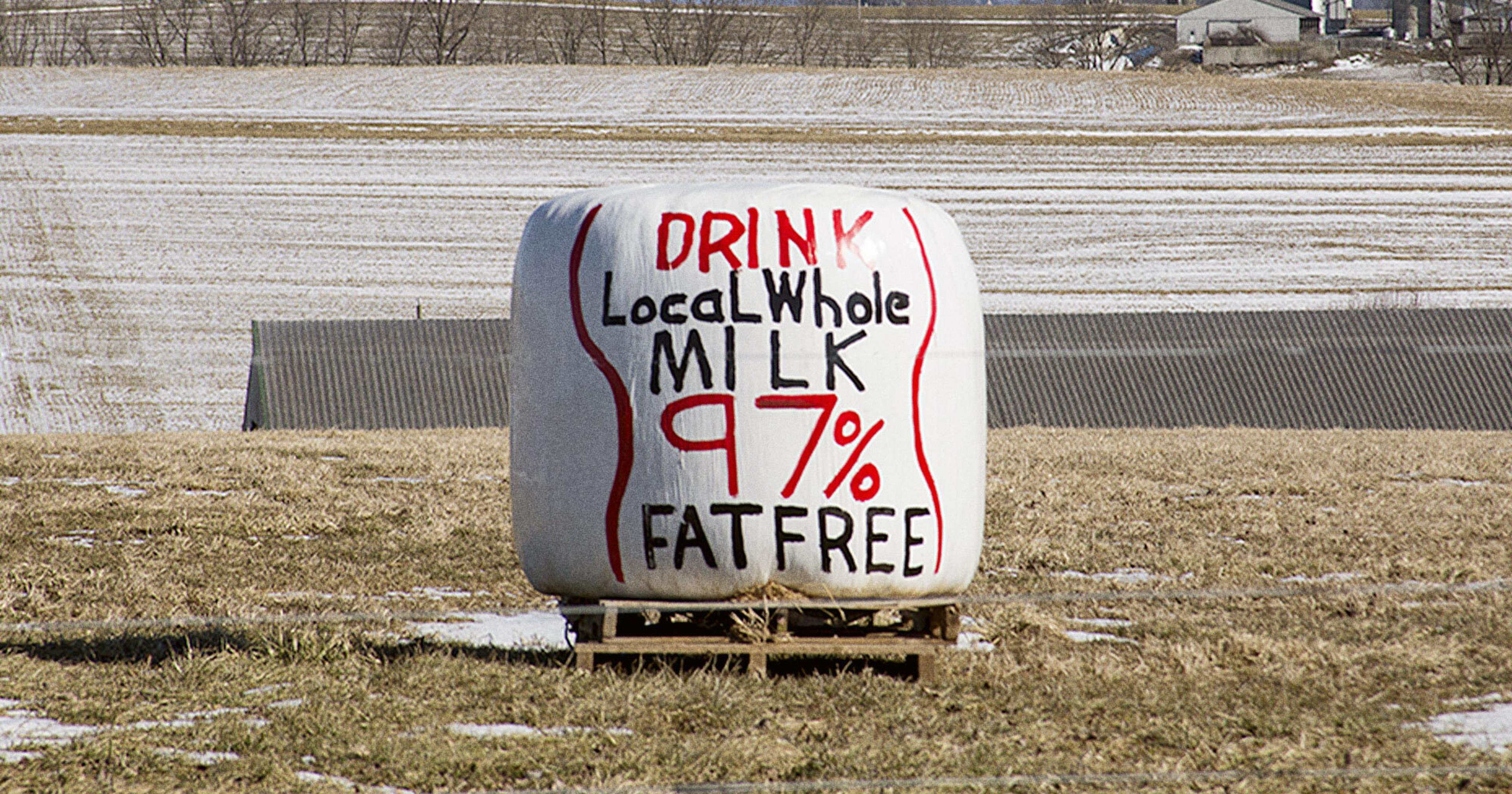After an interstate project caused hundreds of thousands in damage on an East Texas ranch, the state refused to pay up due to a legal loophole.
The first time a newly erected concrete highway barrier caused Richie Devellier’s 900-acre cattle ranch to flood, during Hurricane Harvey in 2017, it was considered a once-in-a-lifetime event.
The flood, which transformed the fourth-generation-owned Texas property into a lake for days, was devastating. Devillier lost his recently paid-off home, dozens of cattle, innumerable calves, a colt, and seven beloved horses his family had for years. He had to evacuate his octogenarian parents, who had lived on the property in Winnie, Texas, for most of their lives, via boat.
“We’ve never seen anything like that,” said Devillier. “We’ve never had water close to our house.”
Days later, when Devellier asked the Texas Department of Transportation what they were going to do to ensure the highway modifications wouldn’t inundate his land with water again, they assured him Harvey was a freak incident.
Two years later, it happened again.
Devillier and many of his neighbors filed suit against the state of Texas. But what seemed to some like it should have been a very cut and dry case of the government paying for private property that it has damaged, has turned into years’ worth of legal wrangling between state and federal courts. The lifelong rancher is now at the center of a Supreme Court case, focusing on a clause in the Constitution, and whether or not state governments should be held accountable for damage they cause.
At issue is the U.S. Constitution’s Fifth Amendment’s Takings Clause, which essentially says that if the government takes your property, you must be compensated. Devillier’s case asserts that the concrete barriers created de facto stormwater storage sites on his property. This case is especially relevant now, given that the Texas Department of Transportation has plans to elevate other sections of the interstate, potentially impacting even more Texas property owners.
A couple of decades ago, the Texas Department of Transportation expanded and raised a section of Interstate 10. A concrete barrier was built in the median, which Devillier and his neighbors allege was erected as a sort of dam to hold water back in the event of a flood. That solid barrier caused all the surrounding properties on the north side of the highway to become inundated with water for days. But the state claimed that it is not responsible.
In response to Devillier’s motion for partial summary judgment, state attorneys argued that the flooding that took place during Hurricane Harvey and Tropical Storm Imelda was something “which no one could have predicted” and that “the center median barrier was not designed to retain water; it was added between the new lanes to prevent potential cross-interstate head-on collisions.”
“The last time they saw their house they were walking through it in waist-deep water searching for anything to save and take with them.”
Devillier disagrees. “It is literally a dam that holds water,” he said. “We drove [the highway] and on the downstream side of it, traffic was able to go back-and-forth, while across the concrete barrier waves were lapping over it — it looked like an ocean.”
The Fifth Amendment states, “nor shall private property be taken for public use, without just compensation.” The clause dates back all the way to the Magna Carta to prevent governments or from its time of origin, the crown, from taking private property without immediate compensation. “It was to recognize you can’t take people’s property without paying anything,” said Suranjan Sen, one of the attorneys working on the case for the Institute for Justice.
Not only did Devillier and his neighbors lose a ton of money from the damage, but all the land north of the freeway has effectively become one big retention pond that will continue to flood whenever there is a major storm — which will likely happen more frequently as climate change intensifies extreme weather events.
But Texas dismissed their claim due to a legal loophole that states are “immune” from these kinds of lawsuits because they have not consented to be sued for violating constitutional rights — a rule that wouldn’t apply to municipalities, counties, or other non-federal government entities. In essence, the state is not even debating the merits of Devillier’s claims, they’re simply saying he doesn’t have the right to bring them. (The Texas Attorney General’s office did not respond to requests for comment.)
“Texas is arguing that maybe we took his property, maybe we didn’t but you don’t get to come into court about it,” said Sen. “We should all find much more frightening than the immediate question of whether this person in this specific case deserves compensation — anything but a victory for Richie could be a signal to states across the country that these rights you have in the constitution are just suggestions.”
“Texas is arguing that maybe we took his property, maybe we didn’t but you don’t get to come into court about it.”
Ilya Somin, policy scholar for the libertarian Cato Institute, said this creates an unconstitutional Catch 22. In an amicus brief to the Supreme Court, he wrote, “If the citizen sues in federal court, the government will argue that there is no federal cause of action, but if the citizen sues in state court, the government will just remove to federal court.”
On September 29, the Supreme Court agreed to take on the case, which includes more than 70 petitioners.
Devillier’s attorneys and other legal scholars are hopeful for a positive outcome, given that the Supreme Court has already ruled in favor of other recent takings cases. For instance, in 2019’s Knick v. Township of Scott, the court reversed an earlier ruling that required plaintiffs with takings claims against state and local governments to first seek state-court solutions before heading to federal court.
But even if Devillier and his neighbors ultimately win, that does not mean they will receive the $1 million each they sought in the initial case. A favorable ruling only means that they will be legally allowed to argue their case for compensation in court.
“The fact that it takes years of litigation and a U.S. Supreme Court opinion is very sad but hopefully we win and, at the end of the day, the precedent can be better for everybody,” said Sen.
For his part, Devilier said he is resolved to continue the fight for his children, one of whom is a horse trainer who would like to take over the ranch, and his parents, who never were able to return to their family home. His father passed away about six months after he was forced to evacuate and his mother died last year in Oregon. The storm and subsequent flooding “just deflated my parents,” said Devellier. “It’s so surreal that the last time they saw their house they were walking through it in waist-deep water searching for anything to save and take with them.”










